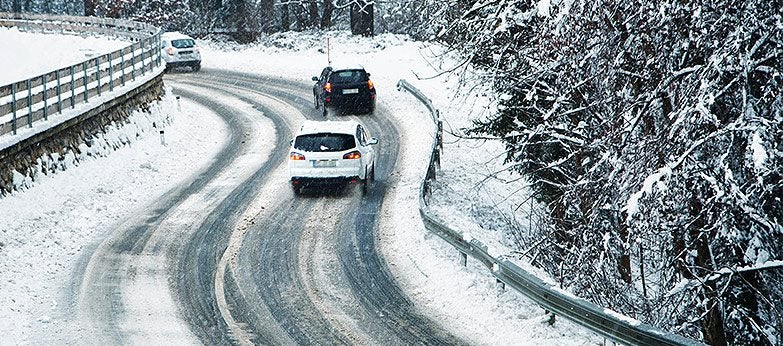
With the colder weather closing in on most of us around the country, the Car Care Council says that now is a good time to take a good look at preparing your car for winter. Taking one or two hours out of your day to have it gone over by your favorite mechanic will reward you with the peace of mind that comes with knowing it is not likely to let you down when the thermometer drops into the chilly zone.
In fact taking this time out is a great way to avoid getting stranded and caught unprepared for the cost of emergency repairs. There are a number of things you need to ask your mechanic to go over on your car that are considered to be essential to keeping in top running condition during the winter months. Here are nine of the most important items to consider as part of your winterization program, be sure your mechanic looks at each of them for you.
The Battery: Cold weather is very hard on car batteries. Have the mechanic check the condition of your battery and test your car’s starting system. If there is any question of your battery’s condition, have it replaced rather than being stranded.
The Antifreeze: According to most manufacturers, the cooling system in your car should be flushed and the antifreeze should be replaced every two years. At the very least you should have the protection level and overall condition checked to ensure your cooling system will not freeze.
The Tires: Check overall tread condition and tread depth, along with tire pressure. Low tire pressure can lead to loss of traction. If you live in an area where snow and ice are common, you should consider winter tires.
The Wiper Blades and Heater: You should have your windshield wiper blades replaced every six months, and use a washer fluid designed for winter weather. Be sure your heater and defroster work properly to keep you warm and your windshield clear in colder weather.
The Brakes: Now is a good time to have the brakes checked to ensure they aren’t grabbing or working unevenly. This will help you avoid losing control in adverse driving conditions.
The Engine Oil: Oil that is dirty or a heavier “summer” weight can make it harder for your engine to start when it is cold. Consider switching to a lighter “winter” weight oil for the colder months. At the same time have your transmission, fuel, and air filters checked or changed.
The Tune-Up: If you have not taken your car in for a tune-up recently, now is a good time to do so as this will make it much easier for your car to start once the temperatures dip below freezing. Not doing so can result in your car running poorly or sluggishly and costing you more at the pump.
The Exhaust System: Winter is never a good time to find out that your exhaust system leaks. This can lead to carbon monoxide entering your vehicle, which can be very dangerous during the months you tend to keep the windows rolled up.
The Lights: During the winter months, the vast majority of your driving is likely to be done in adverse weather or when it is dark outside. This is a good time to make sure all of your lights work both on the inside and outside. It is also a good time to have your headlights aimed for maximum visibility at all times.
At the same time you should try to make sure you never have less than half a tank of fuel as this reduces the risk of moisture forming in your tank, fuel filter, and gas lines. Water in your fuel system can freeze and cause your vehicle to stop running. You should always have an ice scraper/snowbrush on hand, along with a set of jumper cables, road flares, spare clothes, a blanket, food and water, a flashlight, and extra medicine if you take any on a regular basis. It is far better to be over-prepared than to find yourself stuck in a snowbank with nothing to keep you warm and safe.




